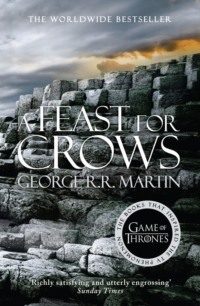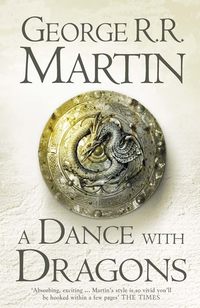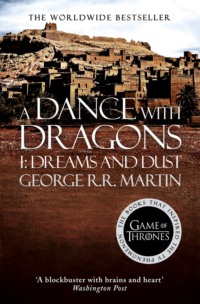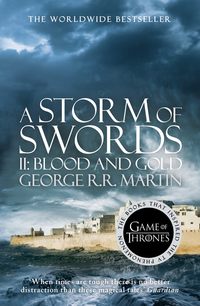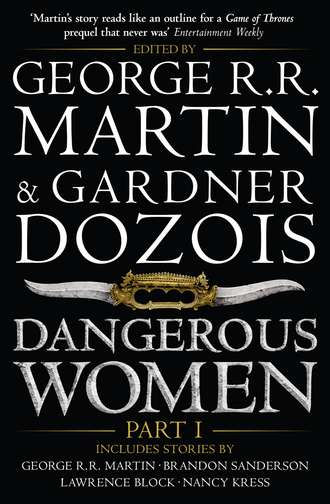
Полная версия
Dangerous Women. Part I
Dragons were a wonder to the men of Old Volantis; the sight of two in battle was one the men of Nessaria would never forget. Those born and bred on Dragonstone had grown up with such beasts … yet even so, the sailors’ story excited interest. The next morning some local fisherfolk took their boats around the Dragonmont, and returned to report seeing the burned and broken remains of a dead dragon at the mountain’s base. From the color of its wings and scales, the carcass was that of Grey Ghost. The dragon lay in two pieces, and had been torn apart and partially devoured.
On hearing this news Ser Robert Quince, the amiable and famously obese knight whom the queen had named castellan of Dragonstone upon her departure, was quick to name the Cannibal as the killer. Most agreed, for the Cannibal had been known to attack smaller dragons in the past, though seldom so savagely. Some amongst the fisherfolk, fearing that the killer might turn upon them next, urged Quince to dispatch knights to the beast’s lair to put an end to him, but the castellan refused. “If we do not trouble him, the Cannibal will not trouble us,” he declared. To be certain of that, he forbade fishing in the waters beneath the Dragonmont’s eastern face, where the dragon’s body lay rotting.
Meanwhile, on the western shore of Blackwater Bay, word of battle and betrayal at Tumbleton had reached King’s Landing. It is said the Dowager Queen Alicent laughed when she heard. “All they have sowed, now shall they reap,” she promised. On the Iron Throne, Queen Rhaenyra grew pale and faint, and ordered the city gates closed and barred; henceforth, no one was to be allowed to enter or leave King’s Landing. “I will have no turncloaks stealing into my city to open my gates to rebels,” she proclaimed. Lord Ormund’s host could be outside their walls by the morrow or the day after; the betrayers, dragonborne, could arrive even sooner than that.
This prospect excited Prince Joffrey. “Let them come,” the boy announced, “I will meet them on Tyraxes.” Such talk alarmed his mother. “You will not,” she declared. “You are too young for battle.” Even so, she allowed the boy to remain as the black council discussed how best to deal with the approaching foe.
Six dragons remained in King’s Landing, but only one within the walls of the Red Keep: the queen’s own she-dragon, Syrax. A stable in the outer ward had emptied of horses and given over for her use. Heavy chains bound her to the ground. Though long enough to allow her to move from stable to yard, the chains kept her from flying off riderless. Syrax had long grown accustomed to chains; exceedingly well fed, she had not hunted for years.
The other dragons were all kept in the Dragonpit, the colossal structure that King Maegor the Cruel had built for just that purpose. Beneath its great dome, forty huge undervaults had been carved from the bones of the Hill of Rhaenys in a great ring. Thick iron doors closed these man-made caves at either end, the inner doors fronting on the sands of the pit, the outer opening to the hillside. Caraxes, Vermithor, Silverwing, and Sheepstealer had made their lairs there before flying off to battle. Five dragons remained: Prince Joffrey’s Tyraxes, Addam Velaryon’s pale grey Seasmoke, the young dragons Morghul and Shrykos, bound to Princess Jaehaera (fled) and her twin Prince Jaehaerys (dead) … and Dreamfyre, beloved of Queen Helaena. It had long been the custom for at least one dragonrider to reside at the pit, so as to be able to rise to the defense of the city should the need arise. As Queen Rhaenyrs preferred to keep her sons by her side, that duty fell to Addam Velaryon.
But now voices on the black council were raised to question Ser Addam’s loyalty. The dragonseeds Ulf White and Hugh Hammer had gone over to the enemy … but were they the only traitors in their midst? What of Addam of Hull and the girl Nettles? They had been born of bastard stock as well. Could they be trusted?
Lord Bartimos Celtigar thought not. “Bastards are treacherous by nature,” he said. “It is in their blood. Betrayal comes as easily to a bastard as loyalty to trueborn men.” He urged Her Grace to have the two baseborn dragonriders seized immediately, before they too could join the enemy with their dragons. Others echoed his views, amongst them Ser Luthor Largent, commander of her City Watch, and Ser Lorent Marbrand, Lord Commander of her Queensguard. Even the two White Harbor men, that fearsome knight Ser Medrick Manderly and his clever, corpulent brother Ser Torrhen, urged the queen to mistrust. “Best take no chances,” Ser Torrhen said. “If the foe gains two more dragons, we are lost.”
Only Lord Corlys spoke in defense of the dragonseed, declaring that Ser Addam and his brother Alyn were “true Velaryons,” worthy heirs to Driftmark. As for the girl, though she might be dirty and ill-favored, she had fought valiantly in the Battle of the Gullet. “As did the two betrayers,” Lord Celtigar countered.
The Hand’s impassioned protests had been in vain. All the queen’s fears and suspicions had been aroused. She had been betrayed so often, by so many, that she was quick to believe the worst of any man. Treachery no longer had the power to surprise her. She had come to expect it, even from those she loved the most.
Queen Rhaenyra command Ser Luthor Largent to take twenty gold cloaks to the Dragonpit and arrest Ser Addam Velaryon. And thus did betrayal beget more betrayal, to the queen’s undoing. As Ser Luthor Largent and his gold cloaks rode up Rhaenys’s Hill with the queen’s warrant, the doors of the Dragonpit were thrown open above them, and Seasmoke spread his pale grey wings and took flight, smoke rising from his nostrils. Ser Addam Velaryon had been forewarned in time to make his escape. Balked and angry, Ser Luthor returned at once to the Red Keep, where he burst into the Tower of the Hand and laid rough hands on the aged Lord Corlys, accusing him of treachery. Nor did the old man deny it. Bound and beaten, but still silent, he was taken down into the dungeons and thrown into a black cell to await trial and execution.
All the while tales of the slaughter at Tumbleton were spreading through the city … and with them, terror. King’s Landing would be next, men told one another. Dragon would fight dragon, and this time the city would surely burn. Fearful of the coming foe, hundreds tried to flee, only to be turned back at the gates by the gold cloaks. Trapped within the city walls, some sought shelter in deep cellars against the firestorm they feared was coming, whilst others turned to prayer, to drink, and the pleasures to be found between a woman’s thighs. By nightfall, the city’s taverns, brothels, and septs were full to bursting with men and women seeking solace or escape and trading tales of horror.
A different sort of chaos reigned in Tumbleton, sixty leagues to the southwest. Whilst King’s Landing quailed in terror, the foes they feared had yet to advance a foot toward the city, for King Aegon’s loyalists found themselves leaderless, beset by division, conflict, and doubt. Ormund Hightower lay dead, along with his cousin Ser Bryndon, the foremost knight of Oldtown. His sons remained back at the Hightower a thousand leagues away, and were green boys besides. And whilst Lord Ormund had dubbed Daeron Targaryen “Daeron the Daring” and praised his courage in battle, the prince was still a boy. The youngest of King Aegon’s sons, he had grown up in the shadow of his elder brothers, and was more used to following commands than giving them. The most senior Hightower remaining with the host was Ser Hobert, another of Lord Ormund’s cousins, hitherto entrusted only with the baggage train. A man “as stout as he was slow,” Hobert Hightower had lived sixty years without distinguishing himself, yet now he presumed to take command of the host by right of his kinship to Queen Alicent.
Seldom has any town or city in the history of the Seven Kingdoms been subject to as long or cruel or savage a sack as Tumbleton after the Treasons. Prince Daeron was sickened by all he saw and commanded Ser Hobert Hightower to put a stop to it, but Hightower’s efforts proved as ineffectual as the man himself.
The worst crimes were those committed by the Two Betrayers, the baseborn dragonriders Hugh Hammer and Ulf White. Ser Ulf gave himself over entirely to drunkenness, drowning himself in wine and flesh. Those who failed to please were fed to his dragon. The knighthood that Queen Rhaenyra had conferred on him did not suffice. Nor was he surfeit when Prince Daemon named him Lord of Bitterbridge. White had a greater prize in mind: he desired no less a seat than Highgarden, declaring that the Tyrells had played no part in the Dance, and therefore should be attainted as traitors.
Ser Ulf’s ambitions must be accounted modest when compared to those of his fellow turncloak, Hugh Hammer. The son of a common blacksmith, Hammer was a huge man, with hands so strong that he was said to be able to twist steel bars into torcs. Though largely untrained in the art of war, his size and strength made him a fearsome foe. His weapon of choice was the warhammer, with which he delivered crushing, killing blows. In battle he rode Vermithor, once the mount of the Old King himself; of all the dragons in Westeros, only Vhagar was older or larger. For all these reasons, Lord Hammer (as he now styled himself) began to dream of crowns. “Why be a lord when you can be a king?” he told the men who began to gather round him.
Neither of the Two Betrayers seemed eager to help Prince Daeron press an attack on King’s Landing. They had a great host, and three dragons besides, yet the queen had three dragons as well (as best they knew), and would have five once Prince Daemon returned with Nettles. Lord Peake preferred to delay any advance until Lord Baratheon could bring up his power from Storm’s End to join them, whilst Ser Hobert wished to fall back to the Reach to replenish their fast-dwindling supplies. None seemed concerned that their army was shrinking every day, melting away like morning dew as more and more men deserted, stealing off for home and harvest with all the plunder they could carry.
Long leagues to the north, in a castle overlooking the Bay of Crabs, another lord found himself sliding down a sword’s edge as well. From King’s Landing came a raven bearing the queen’s message to Manfryd Mooton, Lord of Maidenpool: he was to deliver her the head of the bastard girl Nettles, who was said to have become Prince Daemon’s lover and who the queen had therefore judged guilty of high treason. “No harm is to be done my lord husband, Prince Daemon of House Targaryen,” Her Grace commanded. “Send him back to me when the deed is done, for we have urgent need of him.”
Maester Norren, keeper of the Chronicles of Maidenpool, says that when his lordship read the queen’s letter he was so shaken that he lost his voice. Nor did it return to him until he had drunk three cups of wine. Thereupon Lord Mooton sent for the captain of his guard, his brother, and his champion, Ser Florian Greysteel. He bade his maester to remain as well. When all had assembled, he read to them the letter and asked them for their counsel.
“This thing is easily done,” said the captain of his guard. “The prince sleeps beside her, but he has grown old. Three men should be enough to subdue him should he try to interfere, but I will take six to be certain. Does my lord wish this done tonight?”
“Six men or sixty, he is still Daemon Targaryen,” Lord Mooton’s brother objected. “A sleeping draught in his evening wine would be the wiser course. Let him wake to find her dead.”
“The girl is but a child, however foul her treasons,” said Ser Florian, that old knight, grey and grizzled and stern. “The Old King would never have asked this, of any man of honor.”
“These are foul times,” Lord Mooton said, “and it is a foul choice this queen has given me. The girl is a guest beneath my roof. If I obey, Maidenpool shall be forever cursed. If I refuse, we shall be attainted and destroyed.”
To which his brother answered, “It may be we shall be destroyed whatever choice we make. The prince is more than fond of this brown child, and his dragon is close at hand. A wise lord would kill them both, lest the prince burn Maidenpool in his wroth.”
“The queen has forbidden any harm to come to him,” Lord Mooton reminded them, “and murdering two guests in their beds is twice as foul as murdering one. I should be doubly cursed.” Thereupon he sighed and said, “Would that I had never read this letter.”
And up spoke Maester Norren, saying, “Mayhaps you never did.”
What was said after that is unknown. All we know is that the maester, a young man of two-and-twenty, found Prince Daemon and the girl Nettles at their supper that night, and showed them the queen’s letter. After reading the letter, Prince Daemon said, “A queen’s words, a whore’s work.” Then he drew his sword and asked if Lord Mooton’s men were waiting outside the door to take them captive. When told that the maester had come alone and in secret, Prince Daemon sheathed his sword, saying, “You are a bad maester, but a good man,” and then bade him leave, commanding him to “speak no word of this to lord nor love until the morrow.”
How the prince and his bastard girl spent their last night beneath Lord Mooton’s roof is not recorded, but as dawn broke they appeared together in the yard, and Prince Daemon helped Nettles saddle Sheepstealer one last time. It was her custom to feed him each day before she flew; dragons bend easier to their rider’s will when full. That morning she fed him a black ram, the largest in all Maidenpool, slitting the ram’s throat herself. Her riding leathers were stained with blood when she mounted her dragon, Maester Norren records, and “her cheeks were stained with tears.” No word of farewell was spoken betwixt man and maid, but as Sheepstealer beat his leathery brown wings and climbed into the dawn sky, Caraxes raised his head and gave a scream that shattered every window in Jonquil’s Tower. High above the town, Nettles turned her dragon toward the Bay of Crabs, and vanished in the morning mists, never to be seen again at court or castle.
Daemon Targaryen returned to the castle just long enough to break his fast with Lord Mooton. “This is the last that you will see of me,” he told his lordship. “I thank you for your hospitality. Let it be known through all your lands that I fly for Harrenhal. If my nephew Aemond dares face me, he shall find me there, alone.”
Thus Prince Daemon departed Maidenpool for the last time. When he had gone, Maester Norren went to his lord to say, “Take the chain from my neck and bind my hands with it. You must need deliver me the queen. When I gave warning to a traitor and allowed her to escape, I became a traitor as well.” Lord Mooton refused. “Keep your chain,” his lordship said. “We are all traitors here.” And that night, Queen Rhaenyra’s quartered banners were taken down from where they flew above the gates of Maidenpool, and the golden dragons of King Aegon II raised in their stead.
No banners flew above the blackened towers and ruined keeps of Harrenhal when Prince Daemon descended from the sky to take up the castle for his own. A few squatters had found shelter in the castle’s deep vaults and undercellars, but the sound of Caraxes’s wings sent them fleeing. When the last of them was gone, Daemon Targaryen walked the cavernous halls of Harren’s seat alone, with no companion but his dragon. Each night at dusk he slashed the heart tree in the godswood to mark the passing of another day. Thirteen marks can be seen upon that weirwood still; old wounds, deep and dark, yet the lords who have ruled Harrenhal since Daemon’s day say they bleed afresh every spring.
Конец ознакомительного фрагмента.
Текст предоставлен ООО «ЛитРес».
Прочитайте эту книгу целиком, купив полную легальную версию на ЛитРес.
Безопасно оплатить книгу можно банковской картой Visa, MasterCard, Maestro, со счета мобильного телефона, с платежного терминала, в салоне МТС или Связной, через PayPal, WebMoney, Яндекс.Деньги, QIWI Кошелек, бонусными картами или другим удобным Вам способом.
Footnote
1
In 111 AC, a great tourney was held at King’s Landing on the fifth anniversary of the king’s marriage to Queen Alicent. At the opening feast, the queen wore a green gown, whilst the princess dressed dramatically in Targaryen red and black. Note was taken, and thereafter it became the custom to refer to “greens” and “blacks” when talking of the queen’s party and the party of the princess, respectively. In the tourney itself, the blacks had much the better of it when Ser Criston Cole, wearing Princess Rhaenyra’s favor unhorsed all of the queen’s champions, including two of her cousins and her youngest brother, Ser Gwayne Hightower.



